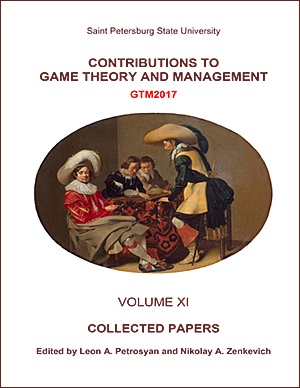Schelling Point as a Refinement of Nash Equilibrium
Abstract
This article proposes using Schelling point as a refinement of Nash equilibrium. It also introduces an algorithm way to locate Schelling points in games. The paper shows that in pure coordination games and games with significant proportion of coordination (and certain proportion of conflict), the algorithm proposed could locate the Schelling points. The existence of a Schelling point means that the proportion of common interests versus conflict of interests has crossed a certain threshold and therefore a certain form of cooperation or coexistence is possible. Besides, using Schelling point as a refinement of Nash equilibrium narrows down the set of equilibriums to only stable equilibriums as unstable equilibriums could not be Schelling points. Finally, the paper shows that the proposed approach could solve a larger set of games than the current approach based on Nash equilibrium. For instance, it would be very difficult to solve multiple sided incomplete information games under the current approach based on Nash equilibrium while the proposed approach could readily solve multiple sided incomplete information games.
Downloads
References
Downloads
Published
How to Cite
Issue
Section
License
Articles of "Contributions to Game Theory and Management" are open access distributed under the terms of the License Agreement with Saint Petersburg State University, which permits to the authors unrestricted distribution and self-archiving free of charge.




